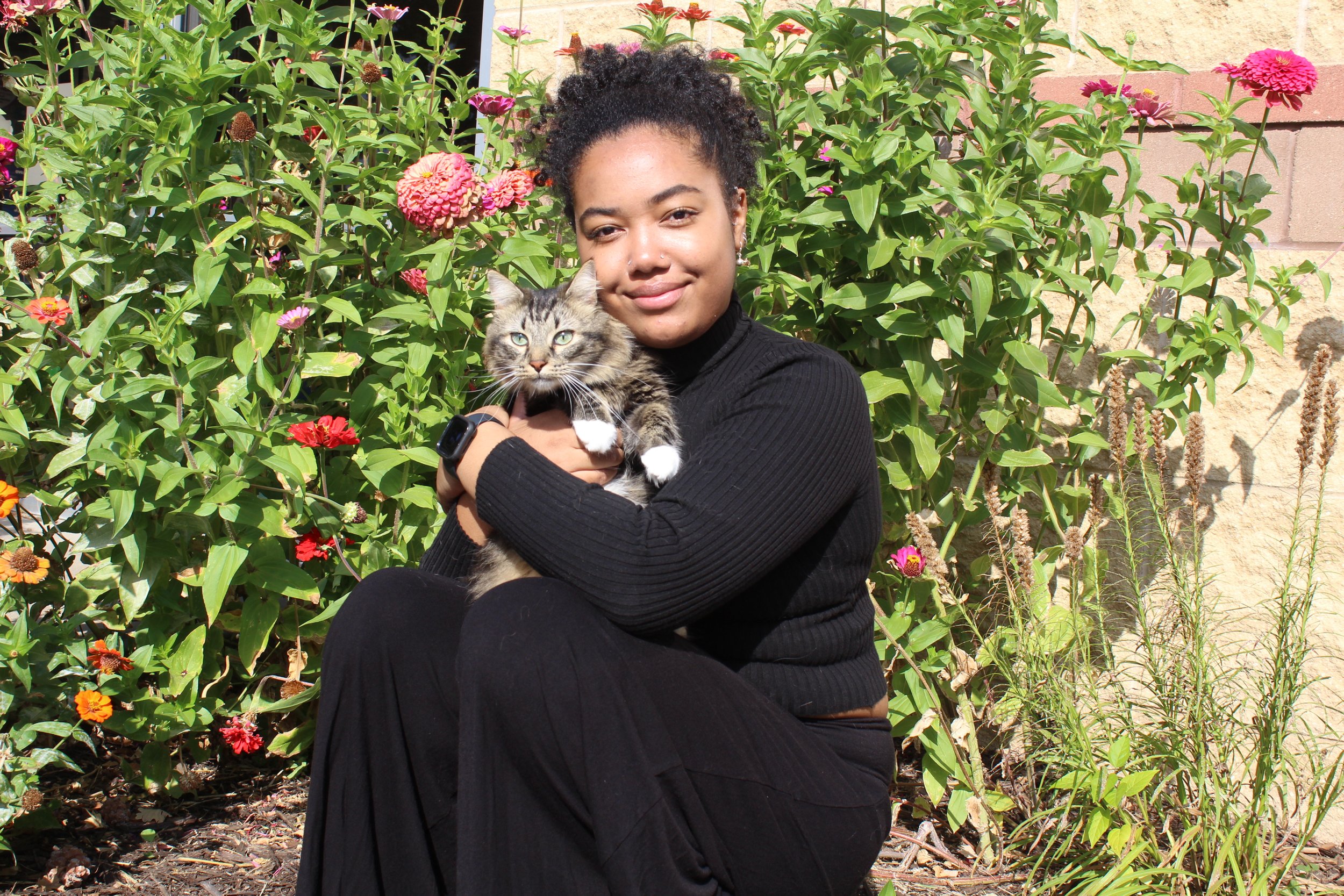Keeping Kimora Satisfied: A Complete Guide to Pet Care and Happiness
Pet ownership brings immense joy, but it also comes with significant responsibilities. Whether Kimora is your beloved dog, cat, or another cherished companion, keeping Kimora satisfied requires dedication, understanding, and the right approach to pet care. This comprehensive guide will help you ensure your furry friend lives a happy, healthy, and fulfilling life.
Understanding Your Pet’s Basic Needs
Keeping Kimora satisfied starts with understanding the fundamental requirements that all pets share. Every animal has basic needs that must be met for them to thrive in a domestic environment. These needs include proper nutrition, adequate shelter, regular exercise, mental stimulation, and social interaction. When these foundational elements are in place, your pet will naturally be more content and well-behaved.
The key to successful pet ownership lies in recognizing that satisfaction goes beyond simply providing food and water. Animals are complex beings with emotional and psychological needs that must be addressed. They require routine, security, and a sense of belonging within their family unit. By establishing a strong foundation of care, you create an environment where your pet can flourish and develop a deep bond with you.
Understanding your pet’s species-specific needs is crucial for keeping Kimora satisfied. Different animals have varying requirements based on their natural behaviors, instincts, and evolutionary history. For example, dogs are pack animals that thrive on social interaction and clear hierarchies, while cats are more independent but still require attention and environmental enrichment. Research your pet’s specific breed and species to better understand their unique characteristics and preferences.
Creating a Comfortable Living Environment
The physical environment plays a crucial role in keeping Kimora satisfied. Your pet’s living space should be safe, comfortable, and appropriately sized for their needs. This includes providing adequate shelter from weather elements, comfortable bedding, and access to fresh water at all times. The environment should be free from hazards such as toxic plants, small objects that could be swallowed, and dangerous chemicals.
Temperature control is another important aspect of creating a comfortable environment. Most pets are sensitive to extreme temperatures, so maintaining a comfortable climate in your home is essential. During hot weather, ensure adequate ventilation and access to cool areas, while in cold weather, provide warm bedding and shelter from drafts. Some pets may require additional heating or cooling measures depending on their breed and health status.
Cleanliness is vital for both your pet’s health and comfort. Regular cleaning of living areas, food bowls, and bedding helps prevent the spread of bacteria and parasites. A clean environment also reduces stress and promotes overall well-being. Additionally, providing designated spaces for different activities, such as eating, sleeping, and playing, helps establish routine and gives your pet a sense of security and ownership within their environment.
Nutritional Requirements for Optimal Health
Proper nutrition is fundamental to keeping Kimora satisfied and maintaining good health throughout their life. The right diet provides energy, supports immune function, and contributes to healthy skin, coat, and overall vitality. Different pets have varying nutritional needs based on their species, age, size, activity level, and health status. Consulting with a veterinarian can help you determine the best dietary plan for your specific pet.
Quality matters more than quantity when it comes to pet nutrition. High-quality pet foods contain balanced proportions of proteins, fats, carbohydrates, vitamins, and minerals that support optimal health. Avoid foods with excessive fillers, artificial preservatives, and low-quality ingredients that may cause digestive issues or allergic reactions. Reading ingredient labels and understanding what constitutes good nutrition for your pet is an important skill for responsible pet ownership.
Feeding schedules and portion control are equally important aspects of proper nutrition. Establishing regular meal times helps regulate your pet’s digestive system and provides structure to their day. Overfeeding can lead to obesity and related health problems, while underfeeding can result in malnutrition and behavioral issues. Monitor your pet’s weight and body condition regularly, and adjust portions as needed based on their age, activity level, and overall health.
Exercise and Physical Activity Needs
Regular exercise is essential for keeping Kimora satisfied both physically and mentally. Physical activity helps maintain healthy weight, supports cardiovascular health, strengthens muscles and bones, and provides an outlet for natural behaviors and energy. The amount and type of exercise required varies greatly depending on your pet’s species, breed, age, and health status.
For dogs, daily walks, playtime, and interactive activities are crucial for maintaining good health and preventing behavioral problems. Different breeds have varying exercise requirements, with some needing several hours of activity daily while others may be satisfied with shorter, less intense sessions. Swimming, hiking, and playing fetch are excellent forms of exercise that can be adapted to your pet’s abilities and preferences.
Cats, while often more sedentary than dogs, still require regular physical activity to maintain health and prevent obesity. Interactive toys, climbing structures, and play sessions with feather wands or laser pointers can provide excellent exercise opportunities. Creating an enriched environment with multiple levels, hiding spots, and interactive elements encourages natural behaviors and keeps cats physically active throughout the day.
Mental Stimulation and Enrichment Activities
Mental stimulation is just as important as physical exercise for keeping Kimora satisfied. Boredom can lead to destructive behaviors, anxiety, and depression in pets. Providing appropriate mental challenges helps keep your pet’s mind sharp and engaged while preventing behavioral problems that often stem from lack of stimulation.
Puzzle toys, treat-dispensing games, and interactive feeders are excellent tools for providing mental stimulation during meal times. These activities engage your pet’s natural foraging instincts and problem-solving abilities while making eating more interesting and rewarding. Rotating toys regularly prevents boredom and maintains novelty in your pet’s environment.
Training sessions serve dual purposes of mental stimulation and bonding opportunities. Teaching new commands, tricks, or behaviors provides mental challenges while strengthening the relationship between you and your pet. Short, frequent training sessions are more effective than long, infrequent ones, and using positive reinforcement techniques creates positive associations with learning and interaction.
Socialization and Bonding Strategies
Social interaction is crucial for keeping Kimora satisfied and developing well-rounded, confident pets. Proper socialization during early life stages helps prevent fear-based behaviors and aggression later in life. However, socialization should continue throughout your pet’s life to maintain social skills and prevent behavioral deterioration.
For dogs, regular exposure to different people, animals, environments, and situations helps build confidence and adaptability. Dog parks, training classes, and supervised playdates provide excellent socialization opportunities. However, it’s important to ensure interactions are positive and controlled to prevent negative experiences that could lead to behavioral issues.
Cats benefit from gentle, gradual exposure to new experiences and people. While they may not require as much social interaction as dogs, they still need regular positive contact with their human family members. Some cats enjoy the company of other cats, while others prefer to be the only pet in the household. Understanding your cat’s personality and preferences is key to providing appropriate socialization opportunities.
Health Monitoring and Preventive Care
Regular health monitoring is essential for keeping Kimora satisfied and catching potential problems early. Establishing a relationship with a qualified veterinarian and maintaining regular check-up schedules helps ensure your pet receives appropriate preventive care and treatment when needed. Annual or bi-annual veterinary visits allow for comprehensive health assessments and updates to vaccination protocols.
Daily observation of your pet’s behavior, appetite, and physical condition helps identify changes that may indicate health issues. Changes in eating habits, energy levels, bathroom habits, or behavior patterns can be early indicators of health problems. Keeping a health journal or using pet health apps can help track these changes and provide valuable information to your veterinarian.
Preventive care measures such as regular vaccinations, parasite prevention, dental care, and grooming are investments in your pet’s long-term health and happiness. These routine procedures help prevent serious health problems and contribute to your pet’s overall comfort and well-being. According to pet health experts featured on beczemaBlog, consistent preventive care can significantly extend your pet’s lifespan and quality of life.
Grooming and Hygiene Maintenance
Proper grooming is important for keeping Kimora satisfied and maintaining good health. Regular grooming helps prevent matting, reduces shedding, and allows for early detection of skin problems, parasites, or other health issues. The frequency and type of grooming required depends on your pet’s breed, coat type, and lifestyle.
Brushing should be done regularly to remove loose fur, prevent matting, and distribute natural oils throughout the coat. This process also provides bonding time and helps your pet become comfortable with handling. For long-haired breeds, daily brushing may be necessary, while short-haired pets may only need weekly grooming sessions.
Bathing should be done as needed, typically when your pet becomes dirty or develops odors. Over-bathing can strip natural oils from the skin and coat, leading to dryness and irritation. Using pet-specific shampoos and conditioners helps maintain healthy skin and coat while avoiding harsh chemicals that could cause allergic reactions.
Behavioral Training and Consistency
Consistent training and behavioral management are crucial for keeping Kimora satisfied and maintaining harmony in your household. Well-trained pets are generally happier because they understand expectations and feel secure in their environment. Training should begin early and continue throughout your pet’s life using positive reinforcement techniques.
Basic obedience training provides structure and helps establish clear communication between you and your pet. Commands such as sit, stay, come, and down are foundational skills that enhance safety and make daily interactions more enjoyable. Consistency in training methods and expectations from all family members helps prevent confusion and accelerates learning.
Addressing behavioral problems promptly prevents them from becoming ingrained habits. Common issues such as excessive barking, scratching, or inappropriate elimination often stem from unmet needs or lack of proper training. Understanding the root cause of behavioral problems allows for more effective solutions and helps maintain a positive relationship with your pet.
Age-Appropriate Care Considerations
Keeping Kimora satisfied requires adapting care approaches as your pet ages. Puppies and kittens have different needs than adult pets, and senior animals require special considerations for health and comfort. Understanding these life-stage differences helps ensure your pet receives appropriate care throughout their lifetime.
Young animals typically require more frequent feeding, veterinary visits, and supervision. They have higher energy levels and may need more mental stimulation and training. Socialization is particularly important during this stage to promote proper behavioral development. Puppy and kitten-proofing your home helps prevent accidents and creates a safe environment for exploration and learning.
Senior pets may experience decreased mobility, sensory changes, and age-related health issues. Adapting their environment to accommodate these changes helps maintain comfort and quality of life. This may include providing easier access to food and water, softer bedding, and modifications to exercise routines. Regular health monitoring becomes even more important for early detection and management of age-related conditions.
Seasonal Care Adjustments
Seasonal changes require adjustments to your pet care routine for keeping Kimora satisfied year-round. Different seasons present unique challenges and opportunities for pet care, from temperature extremes to holiday hazards. Being prepared for these changes helps ensure your pet remains comfortable and safe throughout the year.
Summer heat can be dangerous for pets, particularly those with thick coats or respiratory issues. Providing adequate shade, fresh water, and avoiding exercise during peak heat hours helps prevent heat-related illnesses. Swimming and indoor activities can provide exercise alternatives during extremely hot weather. Never leave pets in parked vehicles, as temperatures can rise to dangerous levels quickly.
Winter weather requires different precautions, including protection from cold temperatures, ice, and snow. Some pets may need protective clothing or booties for outdoor activities. Shorter daylight hours may affect your pet’s mood and energy levels, requiring adjustments to exercise and activity schedules. Holiday decorations and foods can present additional hazards that require careful management.
Creating Routines and Schedules
Establishing consistent routines is important for keeping Kimora satisfied and reducing stress and anxiety. Pets thrive on predictability and feel more secure when they know what to expect from their daily schedule. Regular feeding times, exercise periods, and bedtime routines help regulate your pet’s biological rhythms and promote better behavior.
Morning routines might include feeding, bathroom breaks, and initial exercise or playtime. Consistency in these activities helps your pet start the day on a positive note and establishes expectations for the day ahead. Evening routines should include final bathroom breaks, feeding if appropriate, and calming activities that prepare your pet for rest.
Flexibility within routines is also important to prevent rigidity and help your pet adapt to changes when necessary. While maintaining core schedule elements, allowing for some variation in activities and timing helps build resilience and adaptability. This balance between structure and flexibility contributes to a well-adjusted, confident pet.
Emergency Preparedness and Safety
Being prepared for emergencies is crucial for keeping Kimora satisfied and ensuring their safety during unexpected situations. Emergency preparedness includes having first aid supplies, emergency contact information, and evacuation plans that include your pet. Natural disasters, medical emergencies, and other crises can happen without warning, making advance preparation essential.
A pet emergency kit should include essential supplies such as food, water, medications, first aid supplies, and comfort items. Important documents such as vaccination records, medical history, and identification information should be kept in waterproof containers. Having these items readily available can make a significant difference in emergency situations.
Identification is crucial for reuniting lost pets with their families. Microchipping provides permanent identification that cannot be lost or removed, while collar tags provide immediate identification information. Keeping contact information current and having recent photos of your pet can aid in recovery efforts if they become lost during an emergency.
Technology and Modern Pet Care
Modern technology offers new opportunities for keeping Kimora satisfied through innovative products and services. Smart feeders, activity monitors, and health tracking devices can help optimize your pet’s care and provide valuable insights into their behavior and health patterns. These tools can complement traditional pet care approaches and provide additional peace of mind.
Pet cameras and monitoring systems allow you to check on your pet while away from home, providing reassurance and the ability to interact remotely. Some systems include treat dispensers or interactive features that can provide mental stimulation and engagement throughout the day. These technologies can be particularly helpful for pets with separation anxiety or for busy pet owners who want to maintain connection with their pets.
Health monitoring apps and wearable devices can track activity levels, sleep patterns, and other health metrics that provide insights into your pet’s well-being. This information can be valuable for veterinary consultations and help identify changes in health or behavior patterns that might otherwise go unnoticed.
Key Takeaways for Pet Satisfaction
Keeping Kimora satisfied requires a comprehensive approach that addresses all aspects of pet care and well-being. Success depends on understanding your pet’s specific needs, providing consistent care, and maintaining flexibility to adapt as circumstances change. The investment in proper pet care pays dividends in terms of your pet’s health, happiness, and the strength of your bond together.
Here are the essential elements for pet satisfaction:
• Consistent daily routines that provide structure and security • Proper nutrition tailored to your pet’s specific needs and life stage • Regular exercise and mental stimulation to maintain physical and psychological health • Preventive healthcare including regular veterinary check-ups and vaccinations • Safe, comfortable living environment that meets all basic needs • Positive social interactions and bonding opportunities • Appropriate training and behavioral management • Emergency preparedness to handle unexpected situations
| Care Category | Daily Requirements | Weekly Requirements | Monthly Requirements |
|---|---|---|---|
| Nutrition | Fresh food and water | Diet evaluation | Weight monitoring |
| Exercise | Physical activity | Varied activities | Fitness assessment |
| Grooming | Basic hygiene | Thorough grooming | Professional grooming |
| Health | Observation | Preventive care | Health tracking |
| Mental Stimulation | Interactive play | New challenges | Enrichment rotation |
Frequently Asked Questions
Q: How do I know if my pet is truly satisfied with their care? A: Signs of a satisfied pet include consistent appetite, regular sleep patterns, playful behavior, positive social interactions, and overall contentment. Physical indicators include bright eyes, healthy coat, and appropriate energy levels for their age and breed.
Q: What should I do if my pet seems unhappy despite good care? A: If your pet shows signs of unhappiness such as decreased appetite, lethargy, or behavioral changes, consult with a veterinarian to rule out health issues. Sometimes adjustments to routine, environment, or social interactions can improve satisfaction.
Q: How often should I change my pet’s routine for optimal satisfaction? A: While maintaining core routine elements is important, introducing variety through new toys, different walking routes, or novel experiences can prevent boredom and enhance satisfaction. Small changes weekly or bi-weekly are usually sufficient.
Q: Are expensive pet products necessary for keeping pets satisfied? A: While quality matters, expensive products aren’t always necessary. Focus on meeting your pet’s basic needs with quality food, appropriate shelter, regular exercise, and plenty of attention. Simple toys and activities can be just as effective as expensive alternatives.
Q: How do I balance my pet’s needs with my busy lifestyle? A: Efficient pet care involves establishing routines that fit your schedule, using time-saving tools like automatic feeders when appropriate, and maximizing quality time through focused interactions. Consider pet-sitting services or doggy daycare for additional support when needed.
Conclusion
Keeping Kimora satisfied is an ongoing commitment that requires attention, dedication, and adaptability. By understanding your pet’s needs, providing consistent care, and remaining attentive to changes in behavior or health, you can ensure your furry companion enjoys a fulfilling and happy life. Remember that pet satisfaction is not about perfection but about providing love, care, and attention that meets your pet’s physical and emotional needs.
The journey of pet ownership is rewarding but requires continuous learning and adjustment. Stay informed about best practices in pet care, maintain open communication with your veterinarian, and never hesitate to seek professional guidance when needed. Your commitment to keeping Kimora satisfied will be rewarded with years of companionship, joy, and the special bond that exists between humans and their beloved pets.
Success in pet care comes from understanding that each animal is unique, with individual needs and preferences that require personalized attention and care. By following the guidelines outlined in this comprehensive guide, you’ll be well-equipped to provide the level of care that keeps your pet happy, healthy, and truly satisfied.







